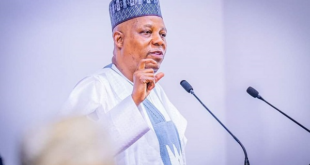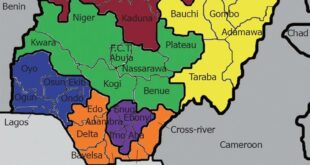Abia State Governor, Dr. Alex Otti, has faulted the Federal Government for not doing enough to inform and persuade Nigerians about the necessity and benefits of removing the fuel subsidy. He said that the policy, which was implemented by President Bola Tinubu in June 2023, was the right decision but came too late and without adequate preparation.
Otti made these remarks at the 63rd Founders Day anniversary lecture of the University of Nigeria Nsukka (UNN) in Enugu State, where he spoke on the theme ‘Petroleum Subsidy Removal: Dealing with the Challenges, Harnessing the Opportunities’.
Otti said that removing the fuel subsidy was a matter of economic survival for Nigeria, as it would free up funds for other developmental projects and create opportunities for private sector participation in the downstream sector. He added that other countries, such as Angola and Senegal, had successfully removed their subsidies and implemented measures to cushion the effects on their citizens.
However, he lamented that the Federal Government did not communicate its intentions and plans clearly and effectively to Nigerians before implementing the policy. He said that this created confusion, resentment, and resistance among many Nigerians who felt that they were being deprived of their entitlements and exposed to hardship.
“One thing I have learned in communicating policies and plans is that you can never get everyone to agree with your proposals. However, sincere and clear communication using various channels would help on two fronts: buy you genuine public support and give your audience an opportunity to understand your intentions better,” he said.
“The removal of fuel subsidies was clearly the right decision and should have been done about ten years ago or earlier, but even then, I am of the considered opinion that more could have been done to insulate the public from the anticipated shocks.”
Otti suggested that the Federal Government should have embarked on more strategic planning and communication before removing the subsidy to insulate the public from the anticipated shocks. He said that it should have educated Nigerians on the true costs and benefits of the subsidy policy, as well as the alternative measures that would be put in place to mitigate the impact of its removal.
He also proposed that the federal government should have considered different categories of poor people in designing its palliative programmes. He said that the urban poor would benefit more from a subsidised mass transit system, while the rural poor would prefer cash transfers, food palliatives, farm inputs, and low-interest loans targeted at smallholder farmers.
He urged Nigerians to support the government’s decision to remove the fuel subsidy and embrace the opportunities that it would create for economic growth and diversification. He also called on the government to be transparent and accountable in managing the savings from the subsidy removal and ensure that they are used for public good.
He commended UNN for inviting him to deliver the lecture and praised its role in producing quality graduates and advancing knowledge in various fields. He also congratulated UNN on its 63rd anniversary and wished it more success in its academic endeavours.
Subscribe to the Advocate News letter and receive news updates daily in your inbox.
 Advocate.ng Latest news update on politics, entertainment, sport and more
Advocate.ng Latest news update on politics, entertainment, sport and more




